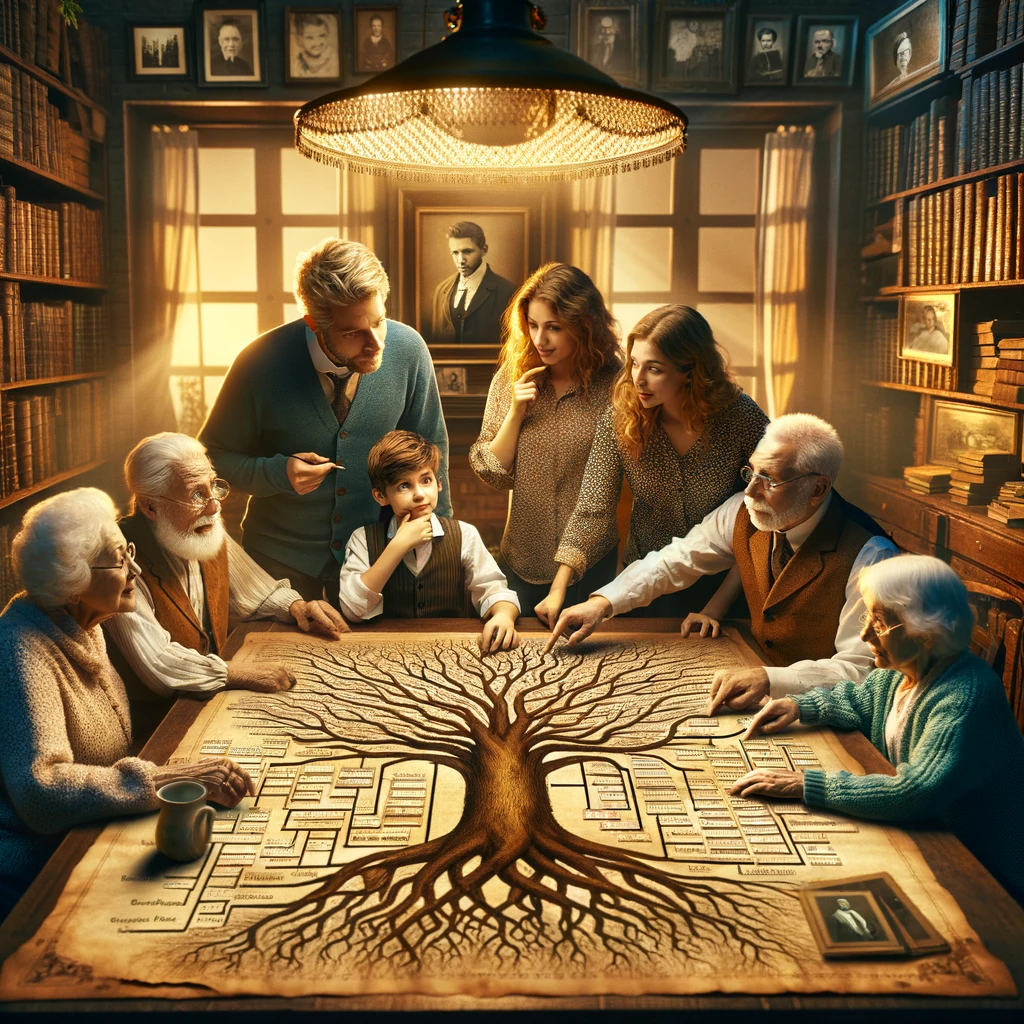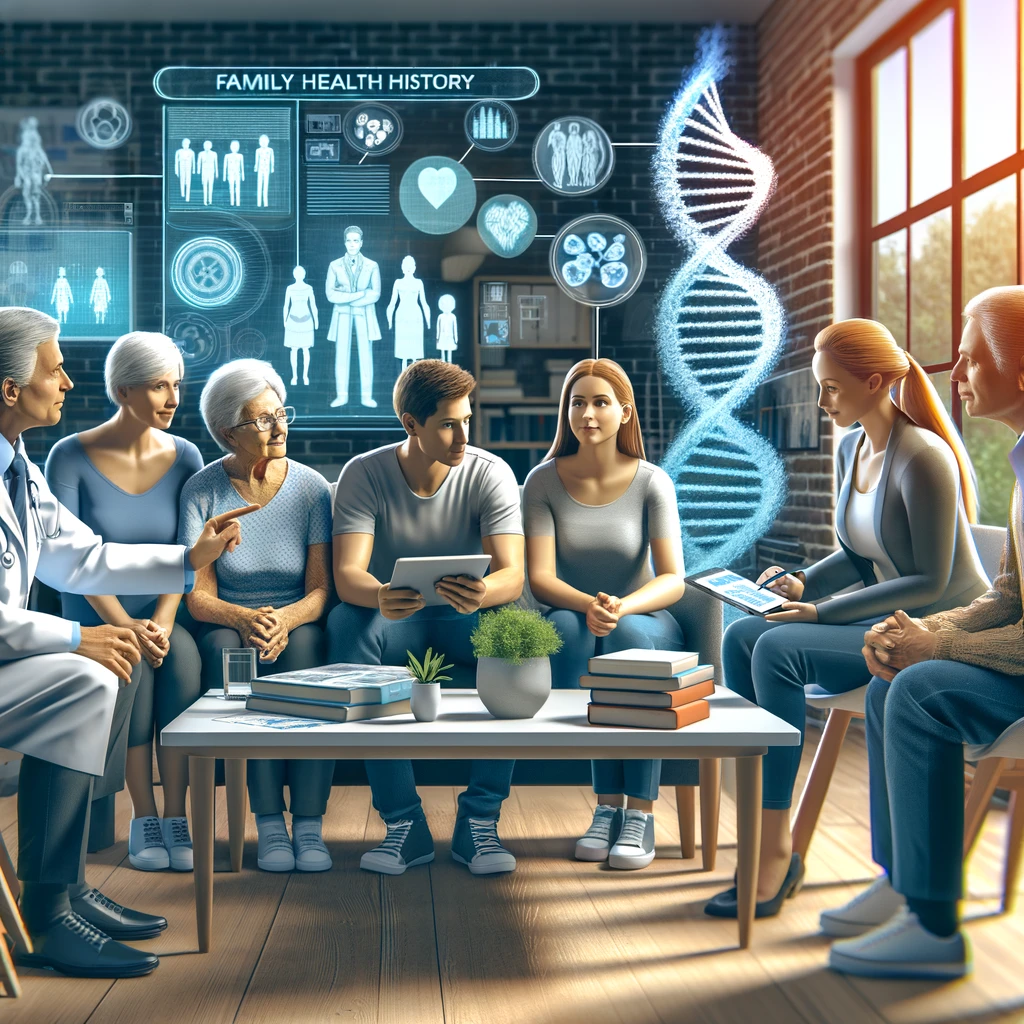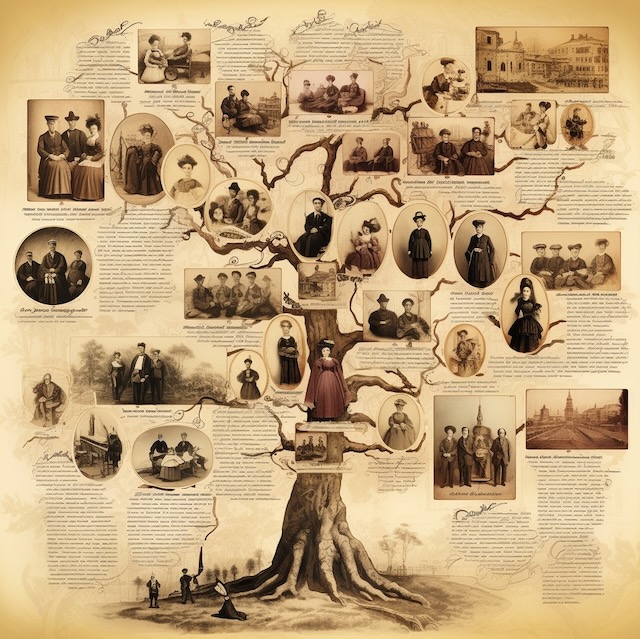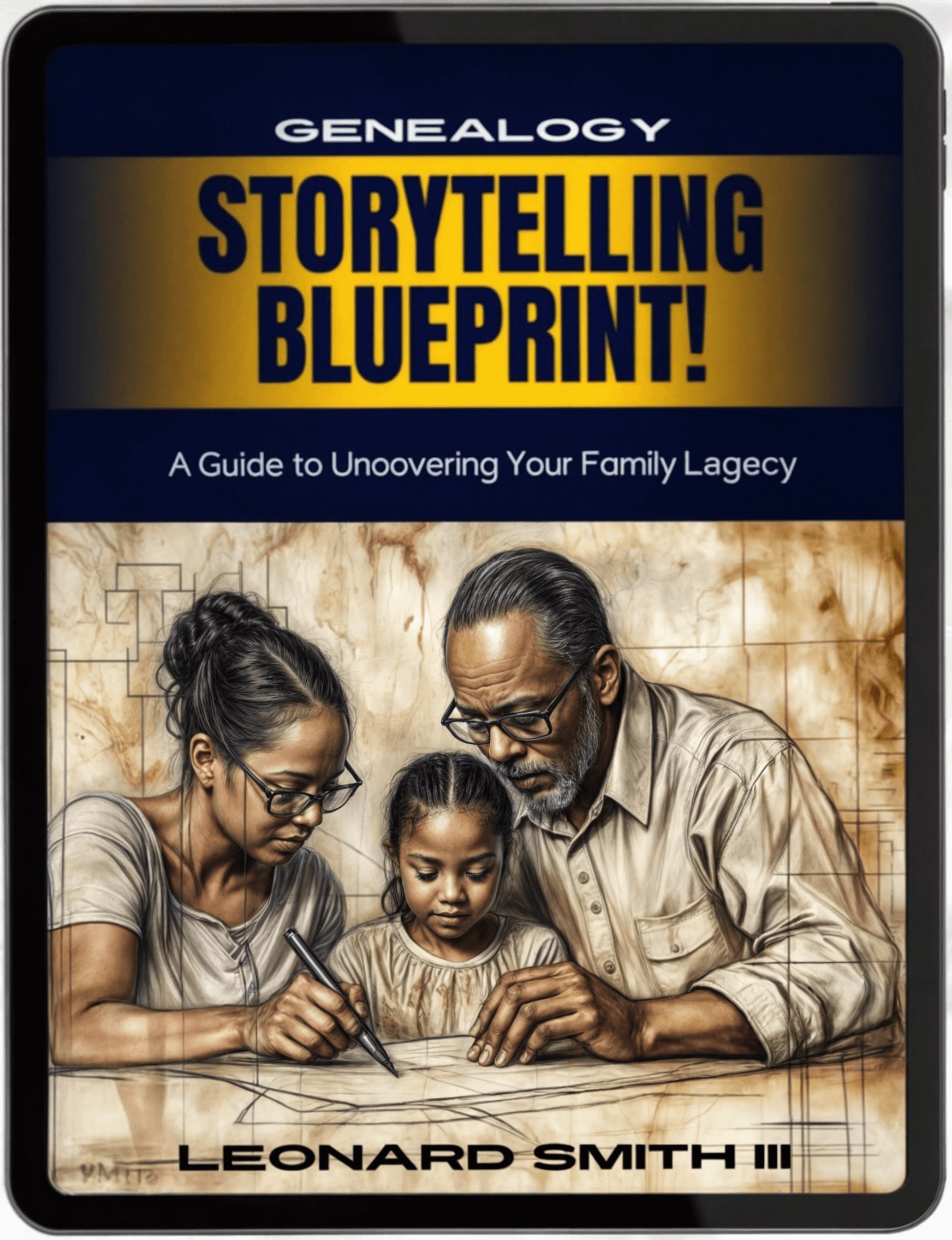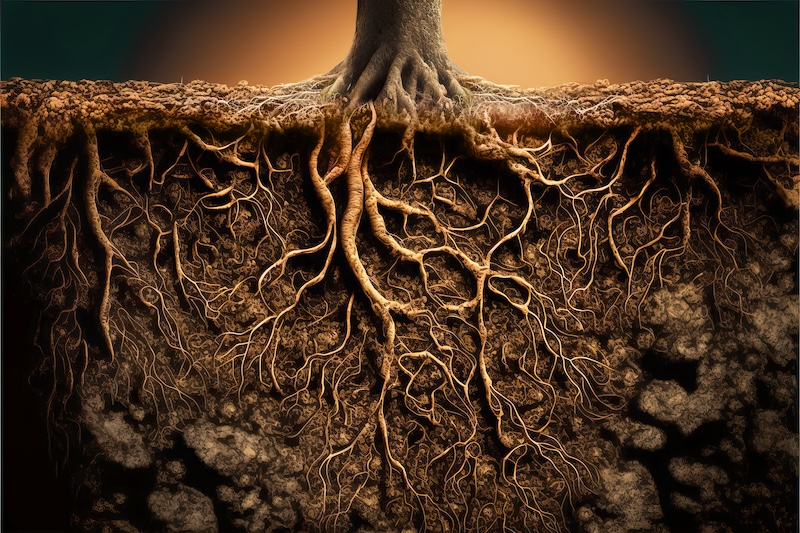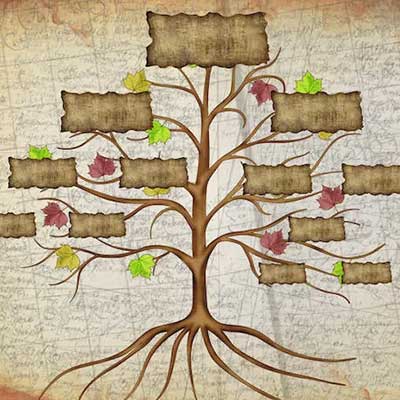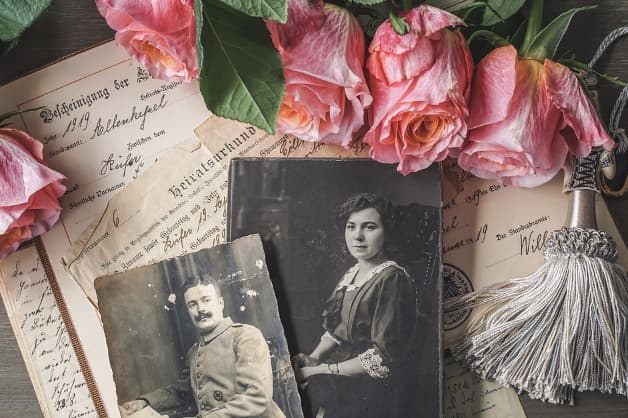- Home
- Family Tree and Family History
- Our Family Histories
More Tips for Finding Our Family Histories
Discover more tips for finding our family histories with expert advice on genealogy research. Uncover tools and techniques to trace your ancestry, deepen your understanding of your roots, and preserve your family legacy for generations.
Discovering the Roots and Branches: Crafting Your Family's Legacy
Embarking on the quest to discover the roots and branches of your family tree is akin to weaving a rich tapestry that spans generations, cultures, and continents. This journey into the depths of your family's history is not merely an academic pursuit; it's a personal exploration that connects you to your ancestors profoundly, enriching your understanding of yourself and your place in the world. Crafting your family's legacy through genealogy research is a multifaceted endeavor that blends historical investigation with emotional discovery, offering insights into your family's past and shaping a legacy for future generations.
Building the Family Tree: A Quest for Connection
The initial step in crafting your family's legacy is constructing a detailed family tree. This involves gathering vital records, such as birth and death certificates, marriage licenses, and even old family bibles that may contain generations of annotations. Engaging with family members, especially the older relatives who are the custodians of family stories and secrets, is invaluable. These conversations can unearth forgotten names, places, and events crucial for connecting the dots. Genealogy research is a detective work that requires patience and persistence but the emotional reward of finding a long-lost ancestor or confirming family lore is immeasurable.
The Importance of Family Health History
An often-overlooked aspect of discovering your family's roots is compiling a comprehensive family health history. This record is a vital tool for understanding hereditary conditions, such as heart disease, breast cancer, or diabetes, which may run in family lines. Knowledge of these health patterns empowers you and future generations to make informed decisions about health screenings and lifestyle changes. Creating a family health portrait is not just a medical exercise; it's an act of care that extends across generations, potentially altering your family’s story toward a healthier future.
The Emotional Journey of Genealogy Research
Unraveling your family's past is an emotional journey that can strengthen your sense of identity and belonging. Psychologists Marshall Duke and Robyn Fivush from Emory University have shown that knowledge of one's family history is closely linked to better emotional health and resilience. Discovering your ancestors' trials, triumphs, and everyday lives provides a sense of continuity and belonging that is deeply comforting. It's about understanding that you are part of something larger than yourself—a narrative that spans centuries and is continuously evolving.
Leveraging Technology and Resources
The digital age has provided genealogists with tools and resources that make research more accessible. Online databases like FamilySearch International and the National Archives offer a treasure trove of historical records that can shed light on your ancestors' lives. DNA testing services can reveal ethnic backgrounds, connect you with distant relatives, and uncover previously unknown family lines. These technological advancements have democratized genealogy, making it possible for anyone curious about their past to embark on this journey of discovery.
More Tips for finding Our Family Histories
Crafting your family's story is not just about understanding the past; it's about preserving these stories for future generations. Writing your family history, creating digital archives, or even starting a blog post to share your genealogy journey are all ways to ensure that your ancestors' legacies are not forgotten. These narratives serve as a bridge between the past and the future, offering valuable lessons, inspiration, and a sense of belonging to the following generations.
A Legacy of Knowledge and Connection
Discovering the roots and branches of your family tree is a profound way to honor your ancestors and craft a legacy that future generations will cherish. It's a journey that enriches your understanding of your family's past, informs the present, and shapes the future. As you delve into genealogy research, remember that each name on your family tree was a person with dreams, challenges, and stories that contributed to your story. By uncovering and preserving these stories, you are keeping the memory of your ancestors alive and strengthening the bonds that tie your family together across time.
Tracing the Family Tree: A Foundation for Future Generations
The quest to map out your family tree begins with gathering vital records, from birth and death certificates, and engaging older relatives in sharing family stories. These narratives provide a rich tapestry of your family's history, embedding a sense of their history into your identity. Websites like FamilySearch International, a public charity organization sponsored by the Church of Jesus Christ of Latter-day Saints, offer a comprehensive starting point for digging into your lineage. Similarly, the National Archives is invaluable for accessing historical records illuminating your ancestors' lives.
The Power of Knowing: Family Health History and Emotional Well-Being
Understanding your family health history is crucial for both physical and emotional health. Knowledge of past health issues, such as heart disease or breast cancer within your family lines, empowers you to take preventive measures or consider lifestyle changes. This record of diseases acts as a guide for necessary screening tests, such as colorectal cancer screening, that can save lives. As Bruce Feiler, a New York Times columnist, eloquently puts it in his blog post, having a detailed family health portrait is akin to possessing a living medical document that benefits you and future generations.
Weaving Stories into the Fabric of Life
The act of writing your family history, from the heroic military service of a close relative to the entire life of an ancestor influenced by figures like Marcus Garvey, transforms mere facts into a compelling family story. This narrative enriches your knowledge of their history, offering a complete guide through the research process. Emory University psychologists Marshall Duke and Robyn Fivush have shown that children who know much about their family’s history exhibit better emotional health and more robust control over their lives.
Lifestyle, Choices, and Ancestral Legacy
Genealogy research uncovers more than just ethnic background or the origins of a last name; it reveals patterns of behavior, such as unhealthy behaviors or poor eating habits, that may have been passed down through generations. Armed with this knowledge, individuals can make informed decisions about their health, potentially altering their family’s story for the better.
Utilizing Modern Tools and Resources
In today's digital age, many resources are available to aid in genealogy research. From the extensive archives of FamilySearch International to the curated collections of local history at the national archives, the tools at your disposal are more accessible than ever. Old pictures, family bibles, and even medical records can provide crucial pieces to the puzzle, helping to paint a fuller picture of your ancestors' lives.
The Role of Community and Shared History
Joining forces with organizations like the Family History Guide Association, engaging with a blog post on genealogy research, or simply sharing stories at a family gathering are great activities that enhance the research process. They provide practical help and advice and strengthen the bonds between family members, creating a shared sense of history and identity.
Crafting a Legacy
The journey to discover your family's history is a richly rewarding endeavor that spans the emotional and the empirical. From the vital records detailing death dates to the emotional narratives of overcoming adversity, each discovery adds a branch to your family tree and a chapter to your family story. This exploration is not merely about the past; it's a gift to future generations—a legacy of knowledge, health, and resilience.
Remember, as you navigate this path, you're not just uncovering the past but laying the groundwork for a healthier, more connected future. Whether you need help deciphering old documents, understanding the implications of breast cancer in your family, or simply looking for inspiration to make lifestyle changes, the journey of crafting your family's story is a profound endeavor that offers insights, healing, and a deeper connection to those who came before and those who will follow.
